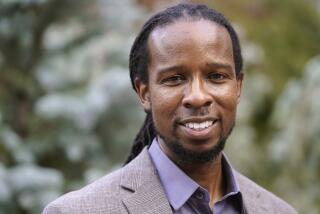Study Says Poor Die Needlessly From Cancer
- Share via
WASHINGTON — Impoverished Americans, lacking access to quality health care, are more likely than others to die needlessly from cancer, according to a major new study released Monday by the American Cancer Society.
“The chance of getting cancer and dying from it is disproportionately higher among poor Americans, regardless of race,” Dr. Harold P. Freeman, president of the organization, said at a press conference.
The estimated 39 million Americans living below the poverty level have a relative cancer survival rate 10% to 15% below that of other Americans, he said. In general, he said, “we expect 50% of cancer patients to survive their disease.” But at least half of the 178,000 persons expected to die in 1989 because their illness was not diagnosed and treated early will be poor, he said.
“These are shocking statistics,” Freeman added.
Cancer is the second overall leading cause of death among Americans, after heart disease. There will be an estimated 1.1 million new cases of cancer in the United States in 1989 and an estimated 502,000 cancer deaths, according to the society.
Calls for ‘Guerrilla War’
The society urged an all-out “guerrilla war” to “tear down the economic and cultural barriers” to early and accurate cancer diagnosis and treatment for the poor, and it called for public policy changes to ensure health care to everyone, regardless of ability to pay.
Freeman said that less than 45% of those below the federal poverty line are eligible for Medicaid. The rest of those designated as poor by the national standard--which he said is an annual income of $11,200 or less for a family of four--”are too poor for Blue Shield but too rich for Medicaid.”
“The data on the poor and cancer has raised some very significant ethical questions as to what the country’s approach must be to this growing segment of the American population,” he said. “The circle of poverty is not a closed circle. There are middle-class people today who will become poor tomorrow. Let us see our own reflections in the faces of the poor.”
Society officers said that their organization has committed $1 million to support local pilot education and research activities geared to the disadvantaged and will spend an additional $1.8 million for three-year pilot programs in Harlem, Oakland and Miami to provide cancer education and detection services for the poor.
“Once these pilots are completed and we can evaluate their impact, we hope to expand the number of sites,” Kathleen Horsch, chairman of the board of the society, said.
To assess the dimensions of the problems of cancer and the disadvantaged, the society conducted a series of hearings across the country in May and June and listened to personal stories of disadvantaged Americans and health care professionals who had struggled with cancer.
Several of those who testified appeared at the Washington press conference to tell their stories.
Barbara Johnstone, of Grand Junction, Colo., who developed breast cancer four years ago--which has since spread--said that she had no insurance and had to sell her clothes and advertise for help in the newspaper to pay for food because she had no money. “I felt very embarrassed about it, but I was desperate to save my life,” she said.
Cassandra Middleton, from John’s Island, S.C., was found to have osteosarcoma of the leg in 1985. Eventually, she was accepted for treatment at the National Institutes of Health, which is free. But, until then, she said, physicians made her feel that “I am not important” because she was poor.
“They make me feel poor,” she said. “I know I am, but they make me feel like I am, too.”
‘Endure Greater Pain’
The report concluded that “poor people endure greater pain and suffering from cancer than other Americans” and “poor people and their families must make extraordinary personal sacrifices to obtain and pay for care.”
Further, the report found that the poor “face substantial obstacles in obtaining and using health insurance and often don’t seek care if they can’t pay for it.” The society called existing cancer education “insensitive and irrelevant to many poor people” and said that “fatalism about cancer is prevalent among the poor and prevents them from seeking care.”
Dr. Samuel Broder, director of the National Cancer Institute, applauded the report, saying that it had “sharpened our sensitivity to the cancer control needs of poor people and rekindled our sense of urgency in helping.”
Dr. Jeffrey P. Koplan, assistant surgeon general and director of the center for chronic disease prevention and health promotion for the federal Centers for Disease Control, similarly endorsed the report, saying: “Preventive services and adequate health care directed toward the disenfranchised can provide hope and health in place of devastation and disease.”
More to Read
Sign up for Essential California
The most important California stories and recommendations in your inbox every morning.
You may occasionally receive promotional content from the Los Angeles Times.













